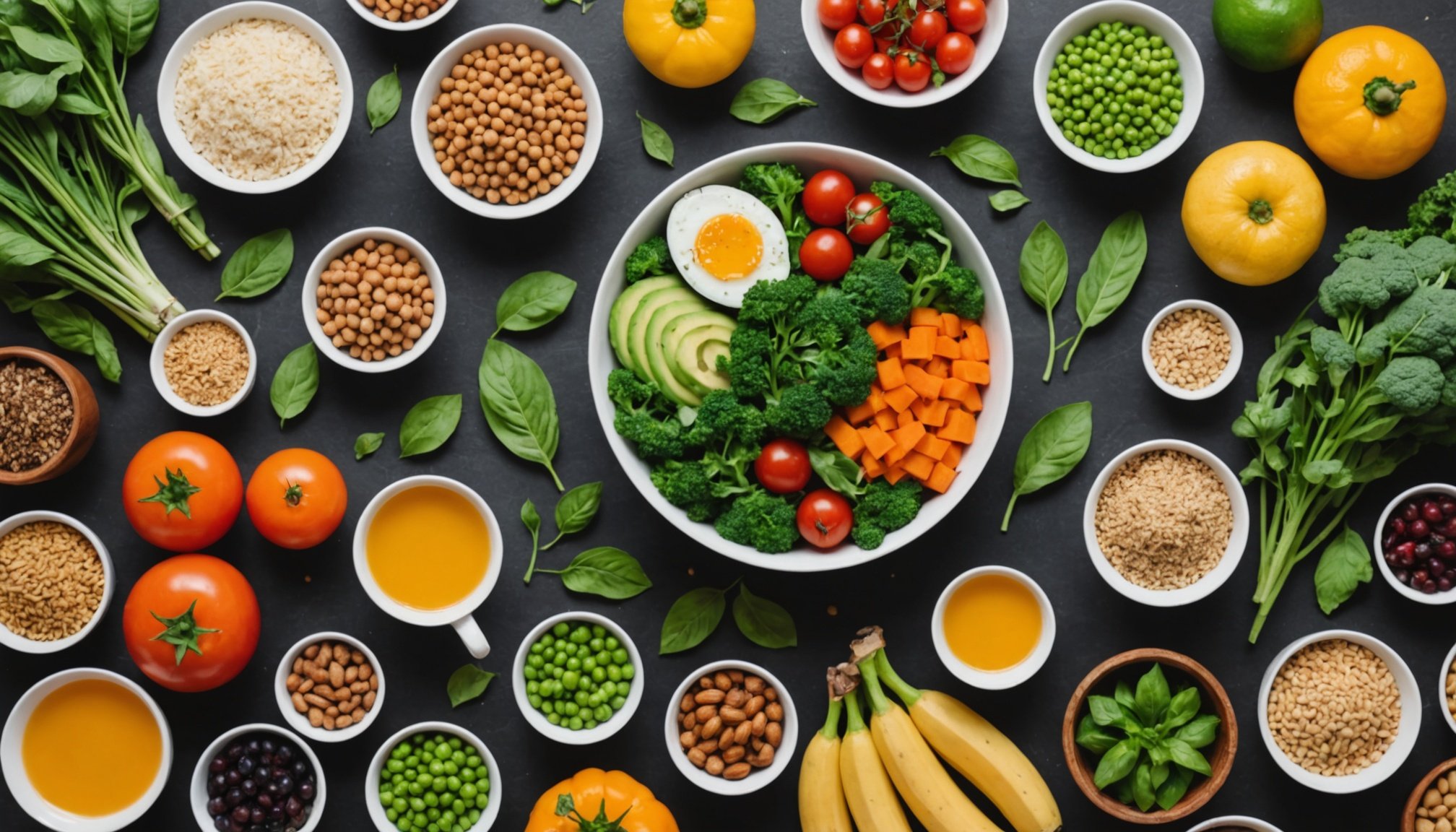Essential Nutrient Guidelines Overview
Pregnancy demands increased attention to essential nutrients for both maternal health and fetal development. These nutrients are pivotal for ensuring a healthy pregnancy, impacting everything from energy levels to the baby’s growth and brain development.
In terms of vegan pregnancy guidelines, meeting the nutritional requirements becomes more complex due to the elimination of animal products. Vegan diets can provide numerous health benefits, but pregnant women following this dietary path need to be particularly vigilant to avoid nutritional deficiencies. Compared to non-vegan diets, nutrient acquisition can require more strategic planning, especially for vitamins such as B12, iron, and calcium.
Have you seen this : Essential Guidelines and Tips for Pregnant Travelers: Air Travel Regulations from UK Airlines
In the UK, dietary guidelines specify precise nutritional needs for pregnant women to ensure adequate intake. These guidelines emphasize the importance of consuming a balanced diet rich in essential nutrients, especially for those on vegan diets. Such considerations involve consulting healthcare professionals, who can provide personalized advice to meet individual nutritional needs effectively.
It’s crucial to understand these guidelines, as they help maintain maternal health and promote optimal fetal development, ultimately encouraging safe and healthy pregnancy outcomes. Proper adherence to these nutritional requirements helps bridge the gap between dietary choices and essential nutrient consumption.
Also to read : Essential Dehydration Symptoms to Monitor During Pregnancy in the UK
Key Vitamins and Minerals for Vegan Pregnant Women
A plant-based diet can meet most, but not all, nutritional needs during pregnancy. Essential nutrients must be carefully managed for both maternal health and fetal development.
Folate
Folate is crucial for the development of the baby’s neural tube. For vegans, natural sources include leafy greens, lentils, and fortified grains. It’s recommended that pregnant women consume at least 600 micrograms of folate daily.
Iron
Iron supports maternal health and fetal growth by helping red blood cells transport oxygen. Plant-based sources like lentils, beans, and quinoa are excellent choices. To enhance absorption, pair iron-rich foods with vitamin C sources, like citrus fruits.
Calcium
Ensuring adequate calcium intake is vital for bone health. Vegan sources include fortified plant milks, tofu, and almonds. Pregnant women should aim for 1,000 mg per day.
Vitamin B12
Vitamin B12 is essential for neurological health. As it’s mainly found in animal products, vegans should consider supplementation or fortified foods to prevent deficiencies, which can harm fetal development.
Omega-3 Fatty Acids
Omega-3s are important for fetal brain development. Vegans can obtain these from flaxseeds, chia seeds, and algae-based supplements to ensure appropriate intake.
Potential Dietary Challenges for Vegan Pregnant Women
Navigating pregnancy nutrition can be daunting, especially when embracing a vegan lifestyle. The journey involves unique dietary challenges addressed through an understanding crucial for both maternal and fetal well-being.
Common nutrient deficiencies faced by vegan pregnant women often include vitamin B12, iron, calcium, and omega-3 fatty acids. These are integral to supporting both the mother’s health and the developing fetus. Animal-free diets may lack these nutrients, necessitating alterations in the usual food choices or supplementation.
Overcoming these challenges requires intentional planning. Emphasizing diverse, nutritionally rich foods ensures a variety of vitamins and minerals are consumed. For example, incorporating fortified products like plant-based milks and cereals can mitigate calcium and B12 shortages. Additionally, cooking techniques such as soaking whole grains and legumes improve iron and zinc bioavailability.
For successful dietary management, professional guidance is indispensable. Nutritionists and dieticians can provide tailored advice to rectify potential nutrient deficiencies. This integrated approach bridges nutritional gaps and fosters a balanced, healthful regimen. With diligent attention and resourceful strategies, a vegan pregnancy can fulfill its nutritional goals effectively, promoting both safe maternal health and fetal development.
Prenatal Supplement Recommendations
For pregnant individuals, prenatal supplements play a critical role in bridging nutritional gaps, particularly for those following a vegan diet. These supplements are essential as they provide concentrated doses of the vitamins and minerals critical for both maternal health and fetal development.
Importance of Prenatal Vitamins
Prenatal vitamins ensure that pregnant women meet their increased nutrient demands. They typically include essential vitamins such as B12, DHA (from algae sources for vegans), and folic acid. While a balanced diet is foundational, prenatal vitamins act as a safety net to guard against potential nutrient deficiencies, notably in vegan diets, where accessing nutrients can be more challenging.
Recommended Vegan Prenatal Supplements
When choosing a supplement, it’s imperative to opt for vegan-friendly brands. These products often list algae-based DHA and B12 among their ingredients, aligning with vegan dietary restrictions. Products such as DEVA Vegan Prenatal Multivitamin or Garden of Life Prenatal Multi DHA are popular choices.
Consultation with Healthcare Providers
Engaging with health professionals for tailored advice is crucial. They can help identify individual nutrient needs and recommend appropriate prenatal supplements. Openly discussing dietary habits and preferences with them ensures a comprehensive nutrition strategy, fostering both safe maternal health and effective fetal development.
Government Guidelines and Statistics on Vegan Pregnancy
In the UK, government guidelines play a pivotal role in shaping dietary recommendations for pregnant women, including those following a vegan lifestyle. These guidelines emphasize the importance of obtaining a balanced diet rich in essential nutrients to support maternal and fetal health. The general recommendations lay stress on nutrients like iron, calcium, and vitamin B12 due to their significant roles in pregnancy nutrition. For vegans, these nutrients must be carefully managed, often requiring consultation with healthcare professionals to ensure adequate intake.
Vegan pregnancy statistics indicate a rising number of women in the UK choosing plant-based diets during pregnancy. This increase accentuates the need for tailored guidance as more pregnant women seek ways to meet their nutritional needs while adhering to vegan principles. Statistics also reveal that with the right dietary practices, these women can achieve comparable health outcomes to their non-vegan counterparts.
Adhering to dietary guidelines has been shown to positively impact maternal and fetal health. By following official recommendations, pregnant women can better navigate potential nutrient deficiencies and minimize risks, ensuring both personal health and optimal fetal development. This highlights the need for widespread awareness and the dissemination of precise, practical dietary information.











